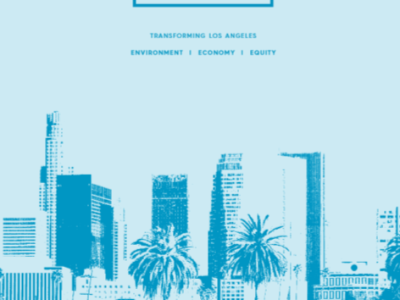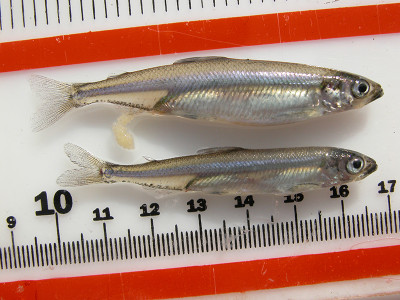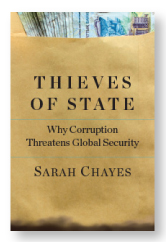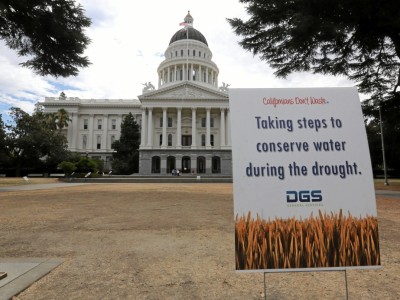Climate Gag Rules and the First Amendment
Are climate gag rules constitutional? Sometimes yes, sometimes no.
There have been recent reports about state agencies that forbid employees from discussing climate change. Since this is obviously a restriction on speech, it's natural to wonder what the First Amendment has to say on the subject. The answer depends in large part on the kind of employee speech at issue. Let's being with a ban on using the term "climate change" in official state communications. That seems to be clearly constitutional under present law, because th...
CONTINUE READINGThe Brazilian Deforestation Puzzle
Deforestation went down for a decade. Now it's going up. The reasons aren't clear.
Brazil’s rate of deforestation went down dramatically over the last ten years. It’s not completely clear why that’s happened. The trend now seems to be reversing (or at least encountering an upward blip). But it’s not clear why that’s happening either. I wish I had a clear explanation to give you. A big part of the story seems to involve national policy shifts, but there are some complications that don’t seem to have obvious explanations. These development...
CONTINUE READINGLos Angeles Releases First-Ever Urban Sustainability “pLAn”
Envisioning greener energy, cleaner air, and reduced consumption in LA by 2035
Perhaps no metropolis is better positioned than Los Angeles to pioneer ground-breaking environmental initiatives. As the second-largest U.S. city, and with the country’s largest municipally owned utility, a world-class research university--UCLA, and the blessings of abundant sunshine and a temperate Mediterranean climate, Los Angeles could serve as a global model for urban sustainability. Today, the City of Los Angeles took a significant step toward realizing its gl...
CONTINUE READINGCan the Supreme Court Provide Just Desserts?
Time for Different Flavors of Legal Reasoning
Ben and Jerry's flavor honoring Stephen Colbert -- "Americone Dream" -- has been so successful, people are coming with other ideas. Tania Lambrozio gets lawyers into the act with her nomination: "Ruth Bader Ginger." I've never actually had ginger ice cream, although I love ginger bread, so maybe it could work. Now there is a petition on change.org to do it, as well as other politically-inflected flavors (I think Mint Romney would be especially good -- its flavor would b...
CONTINUE READINGIt’s a Wonderful Law?
A thought experiment about the role of the ESA in California water management
[This post is co-authored by A. Dan Tarlock, Distguished Professor of Law, IIT Chicago-Kent College of Law.] Remember the movie “It’s a Wonderful Life,” which shows up on TV every year at Christmas season? In it George Bailey, played by Jimmy Stewart, gets a great gift from Clarence, an angel-in-training who intervenes as George is contemplating suicide. Clarence shows George the world as it would be if George had never existed. It turns out that George has ...
CONTINUE READINGStick a Lemon In It
Are recent East Bay water troubles a taste of what lies ahead?
What makes a city world-renowned? For New York (according to the NYC Department of Environmental Protection), it’s the quality of its drinking water. Should this be so surprising? After all, what more fundamental connection does a city have to its residents and visitors than the life-sustaining water that it provides? Recent events in San Francisco’s East Bay have shaken our trust in, and enjoyment of our municipal drinking water. Perhaps these events are a ha...
CONTINUE READINGThe Minister Did It
"Thieves of State" Implies New Focus for Environmental Protection in the Global South
You might remember correspondent Sarah Chayes from NPR in the 1990's, filing reports from Paris. In the early 2000's, she took up a far less glamourous posting: Kandahar, in Afghanistan, and has just completed her second book about it. The book, Thieves of State: Why Corruption Threatens Global Security, contains an important lesson for those interested in environmental protection in the Global South. Chayes posits that corruption is not a byproduct of weak regim...
CONTINUE READINGThe Case Against Sulking
States will only lose out if they refuse to cooperate with the Clean Power Plan.
Mitch McConnell has urged states to refuse to submit plans if the Clean Power Plan is upheld by the Court. He has been accused of inciting lawless behavior on the part of state governments. Let me come to his defense on this. (How often do I get to do that??) The states are under no legal obligation to submit plans. The Clean Air Act does not require them to do so. Coercing states to administer a federal regulatory program would violate the Constitution, at ...
CONTINUE READINGMore on the Governor’s war on lawns
The Executive Order misses some golden opportunities for the Golden State to get a handle on agricultural water use
As you no doubt know by now, on April Fools' Day Governor Brown issued an executive order relying on his emergency powers to impose new statewide restrictions on water use. As has been widely noted in the media (for example by the L.A. Times and Sacramento Bee) and by our own Jonathan Zasloff, Executive Order B-29-15 focuses almost entirely on urban water use, which accounts for only 20% of California's consumptive use, and essentially gives a pass to agriculture, wh...
CONTINUE READINGAre California’s New Mandatory Water Restrictions an April Fool’s Day Joke?
It's Time to Pressure Alfalfa Growers to Stop Wasting Water
Now that Governor Brown has ordered the state's first mandatory water restrictions, it's important to keep one number in mind: one-sixth. That is the amount of California water that goes to one crop: alfalfa. It's a pretty low value crop. And it is not even for human consumption directly; it is used for cattle feed. It could be grown much more easily in the better-watered eastern US, but why should farmers worry about it? They are getting free water based on anti...
CONTINUE READING












